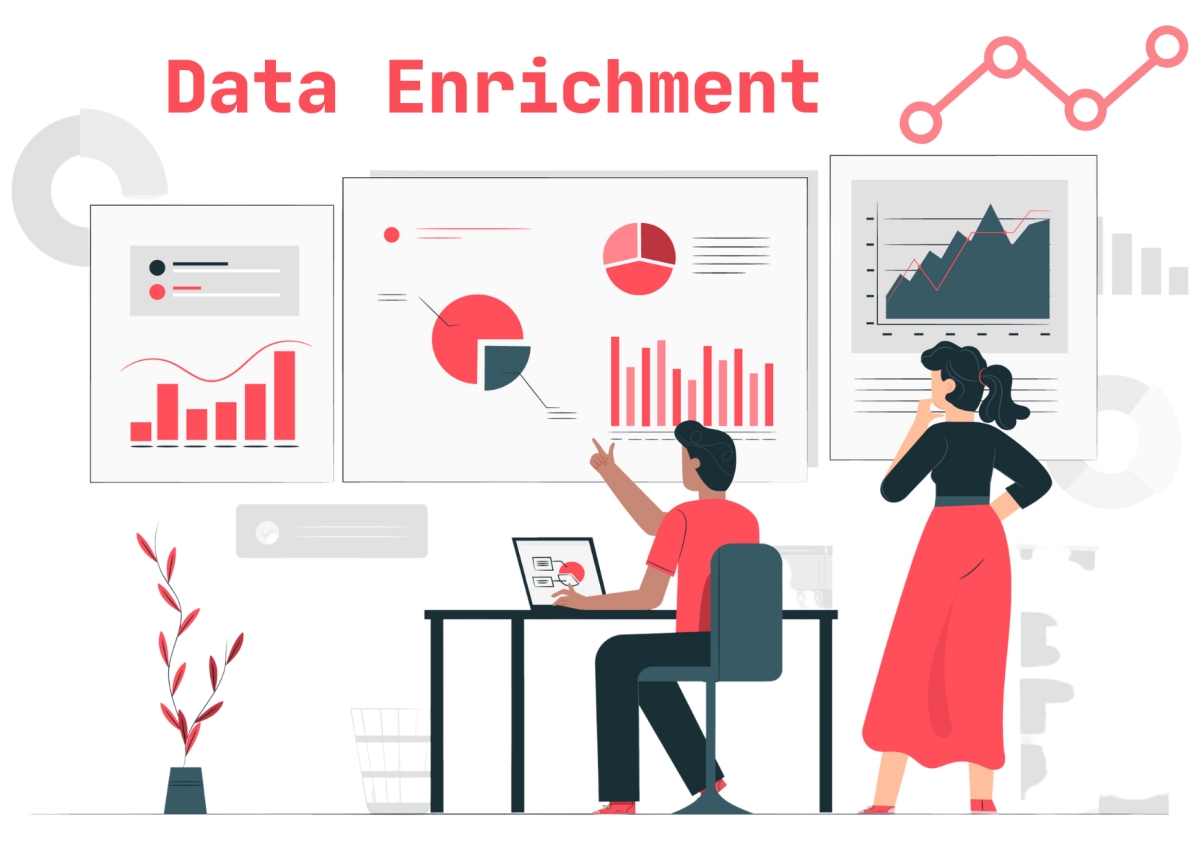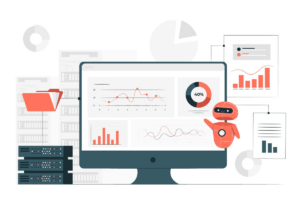
What is data enrichment?
Data enrichment is the process of adding additional information to a dataset. It involves merging and appending first-party or third-party data to the existing dataset. The goal of data enrichment is to increase the value, accuracy, and reliability of the data and improve its usefulness.
Data enrichment is an essential part of the larger data-cleaning process, which focuses on ensuring data accuracy, reliability, and up-to-date information. By merging third-party data from external sources with an existing database of first-party customer data, organisations can enhance the data they already possess, enabling them to make more informed decisions.
Data enrichment plays a vital role in improving, refining, and augmenting raw data, ultimately increasing its value and usefulness for organisations.
Why is data enrichment important?

Data enrichment is important for several reasons.
When new and supplemental information is added to a dataset it increases its accuracy, reliability and therefore its overall quality. Improved data quality leads to more accurate analysis, better decision-making, and higher operational efficiency.
By having more accurate and comprehensive data, organisations can better target their marketing campaigns, personalise customer experiences, and deliver more relevant content and offers. This results in improved customer satisfaction and increased engagement, and ultimately drives success.
Data enrichment allows organisations to gain deeper insights into their users without requiring them to provide additional information. This enhanced understanding helps reduce risk, improve user experiences, and make more informed decisions.
What is the difference between data enrichment and data cleansing?

Data enrichment and data cleansing are two different processes that are often used in data management to improve the quality and usefulness of a dataset.
Data enrichment is the process of enhancing existing data with additional, relevant information. The goal of data enrichment is to provide more context, in-depth insights, and completeness to the existing data. Data enrichment helps to make the data more valuable, accurate, and useful for analysis and decision-making.
Data cleansing is the process of identifying, removing or correcting errors, inconsistencies, duplicates, and inaccuracies in a dataset. The main objective of data cleansing is to ensure data quality and integrity. This process typically involves removing irrelevant or outdated data, correcting spelling or formatting errors, standardising data values, resolving inconsistencies, and eliminating duplicates.
While data enrichment focuses on enhancing the existing data with additional relevant information, data cleansing improves data quality by eliminating errors, inconsistencies, and duplicates. Both processes are important for maintaining high-quality data and making more informed decisions.
How often should you enrich your data?

We recommend that your data should be enriched regularly, depending on your organisation’s needs and the frequency of changes in your data.
Data typically deteriorates by 20-30% a year. People change jobs, get promoted, and move home. Companies go out of business, expand, and relocate. Every one of these changes contributes to data decay.
A common approach is to schedule data enrichment on a quarterly or yearly basis. However, if your data changes often, you may need to enrich it more frequently.
If you are using your data for real-time decision-making, you may need to enrich it in near-real time. It’s important to assess your data needs and update your data enrichment strategy accordingly.
Don’t leave your marketing campaigns to chance

Data enrichment is vital for your marketing and sales efforts as it enhances understanding of users, improves data quality, enriches customer profiles, enables data-driven decision-making, and optimises business results. By leveraging enriched data, organisations can gain a competitive edge and effectively meet the evolving needs of their customers.
Are you unsure whether your data needs enriching? Then ask yourself the following questions:
- Does your organisation have large datasets in documents or a CRM that have not been updated in a while?
- Is the ROI of your marketing campaigns stunted by your current data?
- Is your sales team struggling to take leads to the next level?
If you answered yes to any of these, then our data enrichment service is what your organisation needs to drive your marketing campaigns and sales growth.
